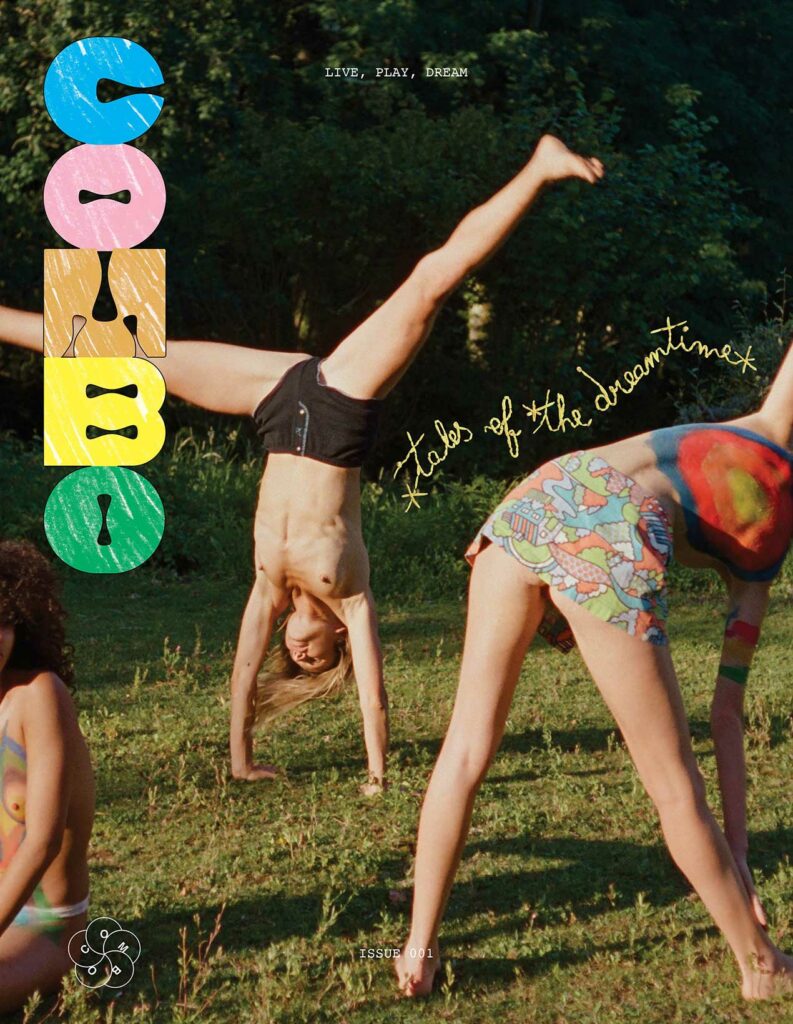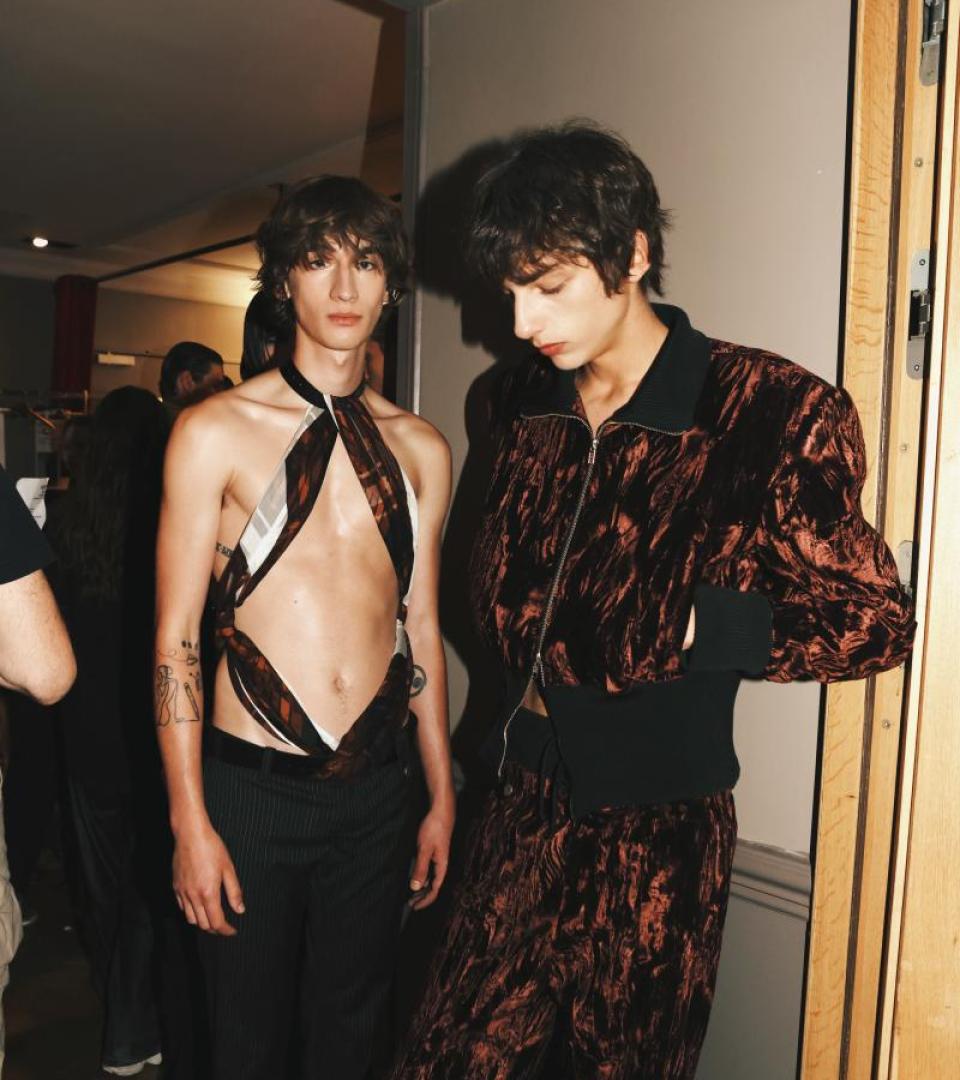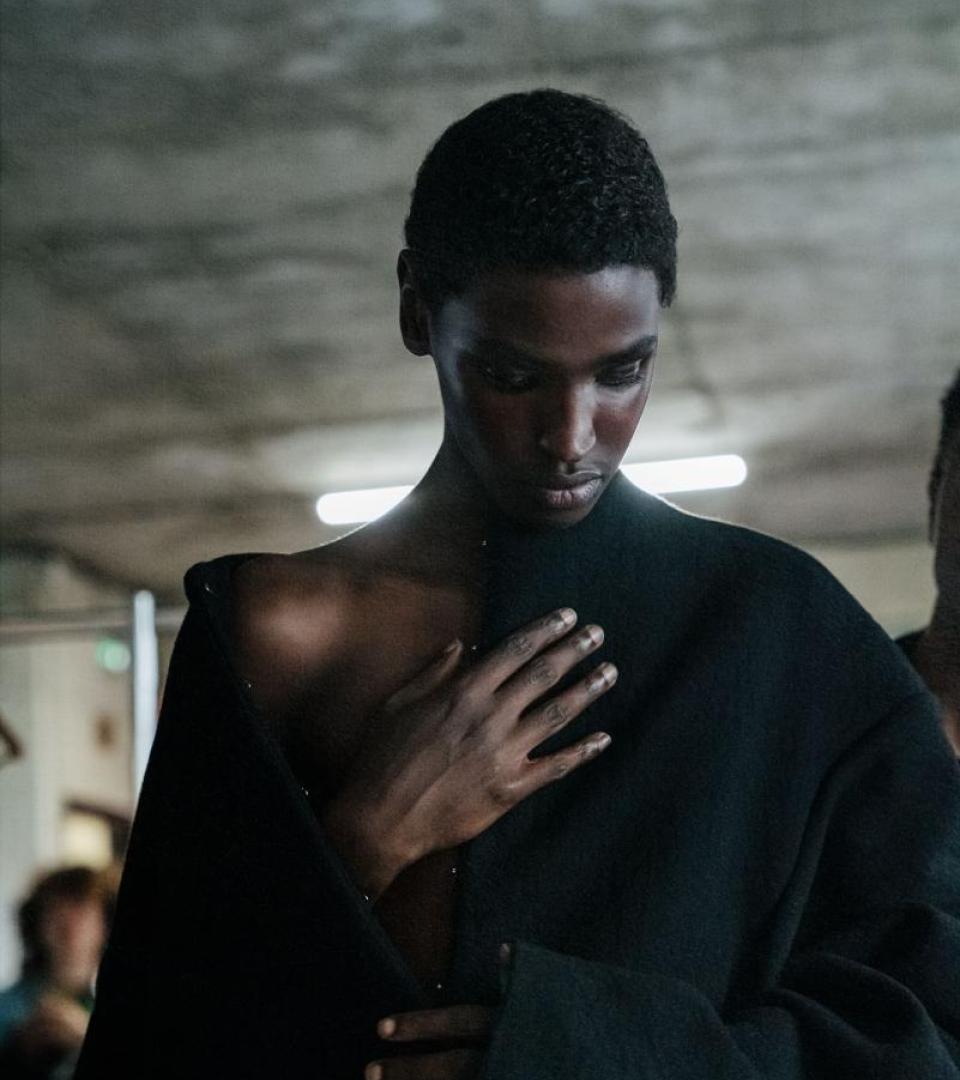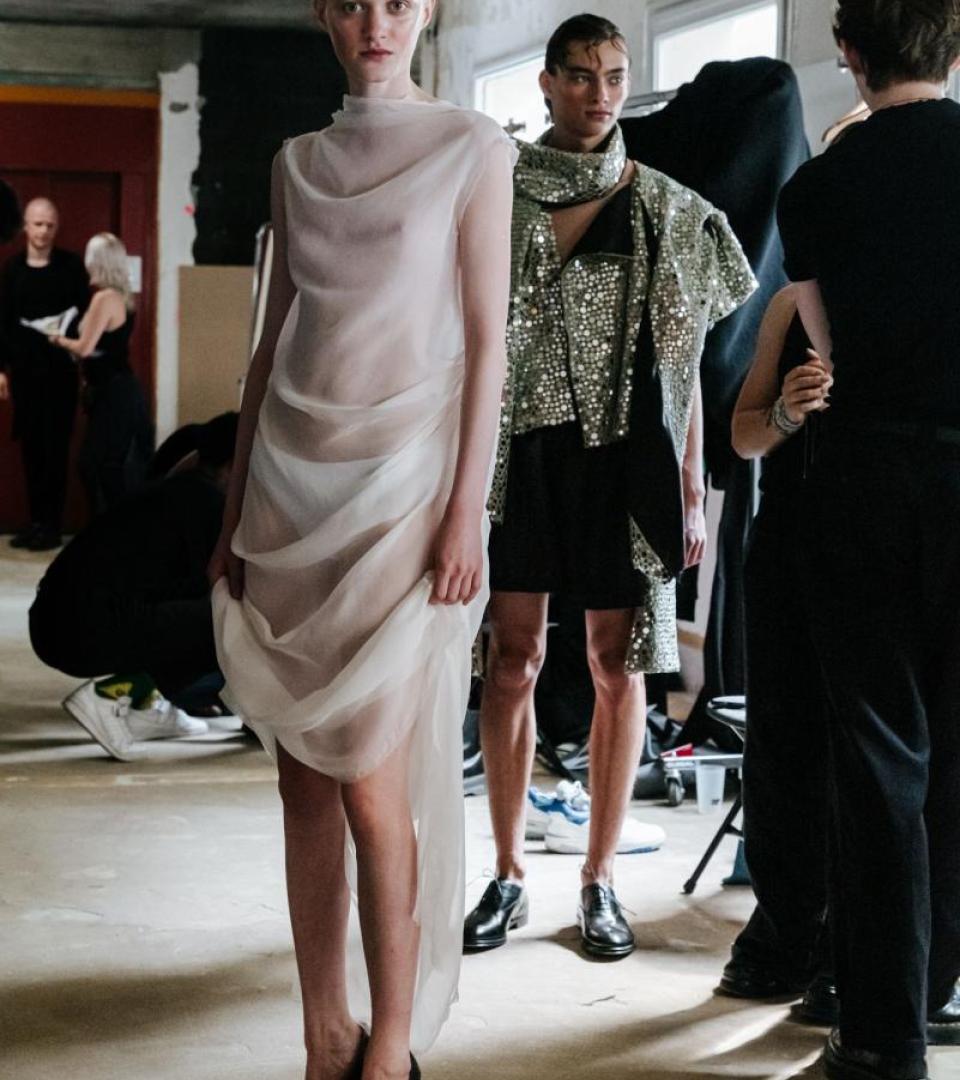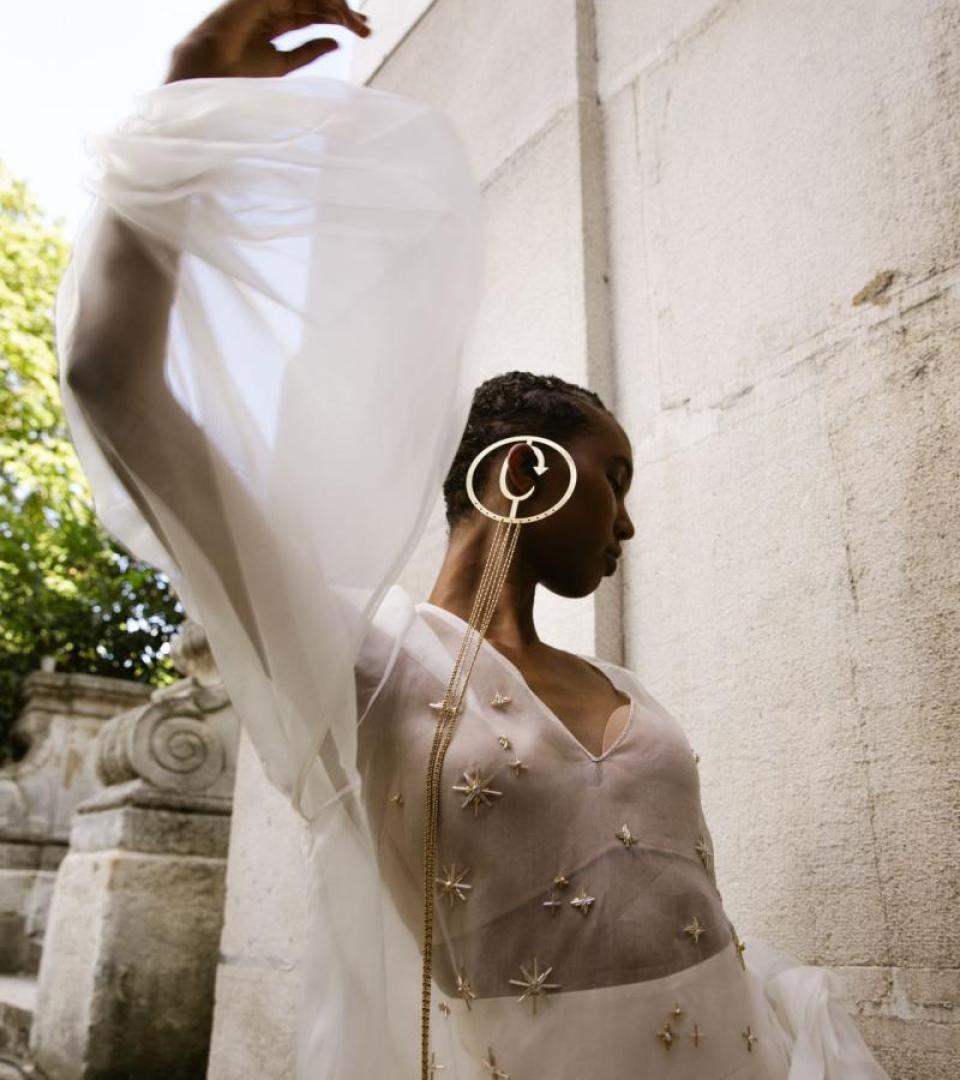A Take On Fashion: Louise Follain
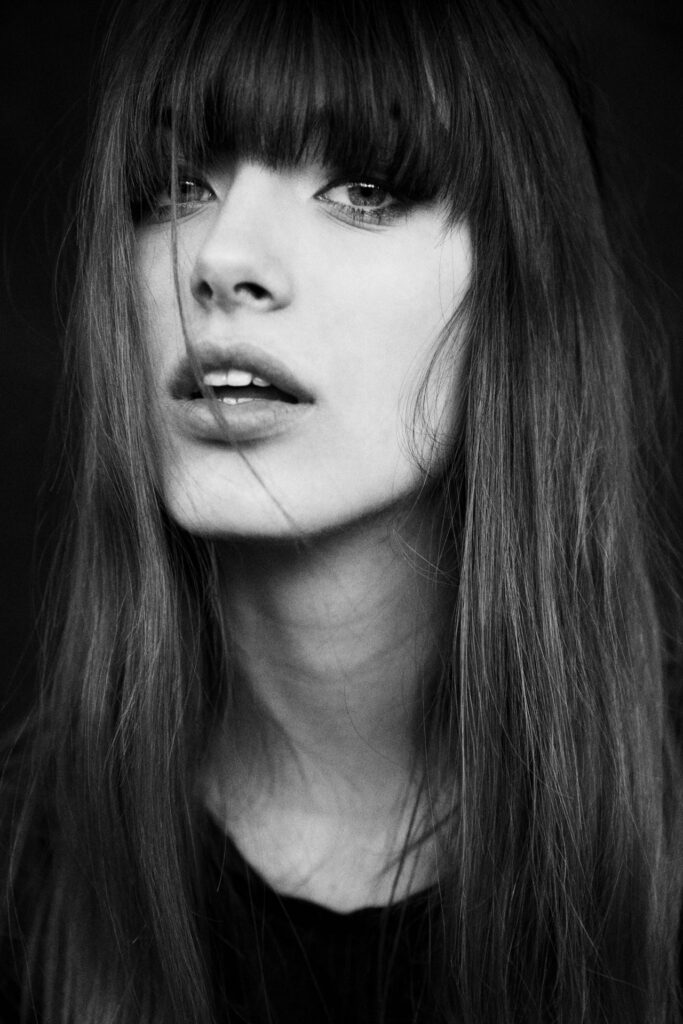
Born and raised in Paris, model and stylist Louise Follain is considered an emerging style icon. With her Jane Birkin fringe and effortless styled, she has become recognised internationally. Yet her professional pursuits transcend modelling Recently, Follain joined a new editorial project titled Combo magazine as editor-in-chief, with the first issue launching this month. “A glossary off happiness to keep close to your heart,” is its purpose. Ahead of the debut, Follain shares her views on fashion for Paris Fashion Week.
What is a trend or item that reflects women’s style at this point in time?
I speak from my own taste, but I think everything that is handmade — the ’60s hippie aesthetics as all the crochet, knits. Also, symbols and folklore inspired items. I think there’s just a huge need for meaning, storytelling and origins that reflect the spirit of the time we are experiencing now.
How can fashion as a form of individual and free expression play a role in our changing societies?
First, I think it became so much more relevant that fashion is such an enjoyable and playful way of expressing oneself now that we have so few reasons to really dress up. Personally I miss it a lot! But art and fashion have always been a way of reshaping mentalities and conveying impactful messages. All the clothes we wear have meaning. All the clothes we buy, as any consumption choice, have an impact and make a political statement. It has never been so important to be mindful of what we want to express. I’ve always loved buying second-hand but now it has become a necessity. If you don’t buy second-hand, at least be mindful of the ethics of the brand you buy from. The word sustainable can hide a lot, too. Fashion houses and brands have power, and with that power comes responsibility. They can choose how to act for change.
How does the current crisis impact people’s relationship with clothing and fashion?
Luxury now means long-lasting pieces, and we are looking for more natural looks, essentials, and pieces that value craftsmanship. We have a desire to know who made our clothes and where their design come from. We have disrespected and dehumanized so much in the last few decades — but I’m hopeful, because little by little, the industry and individuals are becoming more conscious, aware, and less wasteful.
You just launched Combo Magazine. How have you worked on this project?
This last year has been such a big shift in our collective consciousness. I started working on Combo during the first quarantine. It grew organically into everything I had imagined and more. Gathering people into the making of an object; crystallizing this moment we are collectively living, visualizing, representing and manifesting what we hope for our future. More nature, more freedom, more joy. To me, making this object was a form of engagement, and I hope it’s part of something bigger that is happening in the world right now.
